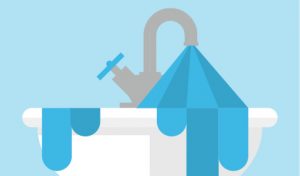 Having frequent, loose or watery stools can be one of the side-effects of cancer treatment.
Having frequent, loose or watery stools can be one of the side-effects of cancer treatment.
Diarrhoea (frequent, loose or watery stools) can be a side-effect of cancer treatments such as chemotherapy, radiotherapy, targeted therapies and surgery.
Infections and some medications, such as antibiotics, can also cause diarrhoea.
If you have diarrhoea, it’s important to seek advice from your doctor, as there are many causes that require different types of treatment. If you’re prescribed medication to help with diarrhoea, it’s important you take it as directed.
If you continue to have diarrhoea after your treatment has finished – or beyond the time you were told you might experience problems – get further advice from your doctor.
Regardless of the cause, diarrhoea can make you dehydrated, so aim to have plenty of hot and cold drinks to replace any fluids you might be losing.
As a guide, aim to drink at least two litres (3.5 pints) a day – this is at least 10–14 glasses. As well as sipping on water throughout the day, you could try drinking:
*Some people may find milk can make their diarrhoea worse. If this is the case for you, you could try lactose-fee milk or milk alternatives.
If you have really bad diarrhoea, speak to your doctor or a pharmacist, as you might need to replace lost salts with salty foods or a rehydrating solution such as Dioralyte.
Try not to restrict the amount you’re eating, to make sure you don’t miss out on important nutrients. It may be best to eat little and often, rather than have three main meals, to avoid large amounts passing through your bowel.
You could also try chewing and swallowing your food slowly. If you find that diarrhoea is disturbing your sleep, try to avoid eating close to bedtime.
Some people find certain foods can make their diarrhoea worse, so you might want to consider whether these foods affect you. If they do, try avoiding them or reducing the amount you eat:
Until recently, people with diarrhoea were advised to reduce the amount of fibre in their diet. However, for many causes of diarrhoea, including chemotherapy and radiotherapy, there is actually no evidence that this will have any benefit.
This is good news as it means that people can often continue to eat a normal, healthy, balanced diet containing adequate amounts of fibre-containing foods, such as vegetables, fruit, pulses (like beans and lentils) and wholegrain foods.